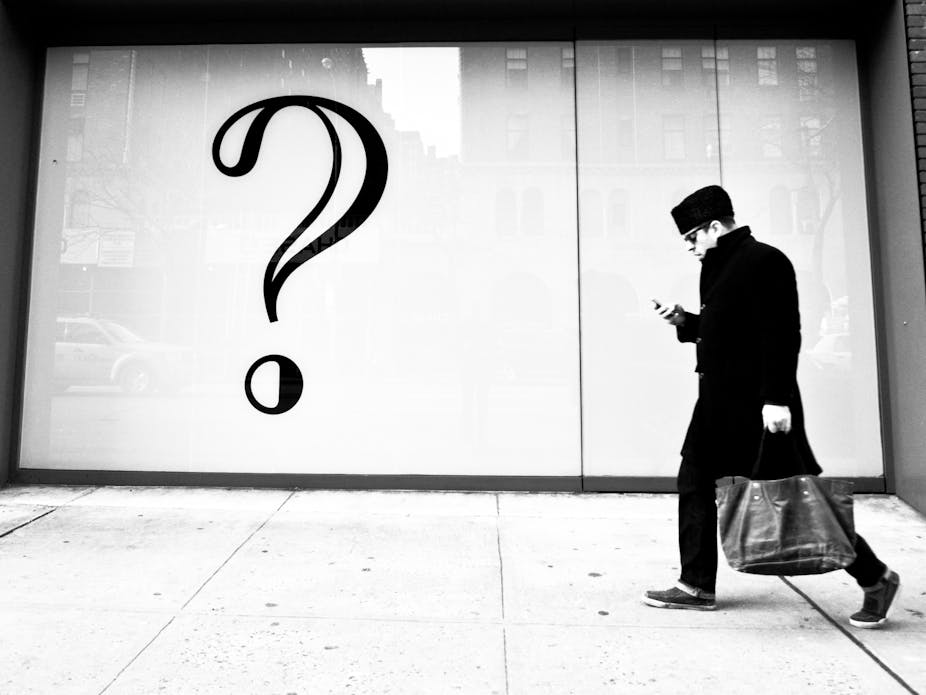At first glance, academia and social media might not appear to have an obvious connection. Social media use tends to be viewed as frivolous or as an activity undertaken for purely personal reasons, such as keeping in touch with friends or family. These views are often expressed in academic circles.
Yet some universities are now encouraging academics to use social media to engage with the public and to disseminate their research more widely. Academics themselves are beginning to realise the potential of social media use.
As an academic who has experimented with using social media over the past two years, I am interested in researching their implications for higher education.
I conducted a survey in January 2014 to investigate how academics internationally are using social media for professional purposes. The focus of the survey was on academics who were already using social media. The respondents were asked to nominate which social media they used as part of their work and which they found most useful. They were also invited to write comments about their experiences, including the benefits they perceived and any worries or concerns they had.
Scholarly strategy
The results offer insights into the sophisticated and strategic ways in which some educators and researchers are using social media and the many benefits they have experienced for their work.
These included:
- connecting and establishing networks – not only with other academics but also individuals and groups outside universities
- promoting openness and sharing of information
- publicising and developing their research
- giving and receiving support.
Twitter was especially valued as a medium for scholarly communication, as it was viewed as fast and responsive.

It was common for the respondents to comment that their social media networks had expanded in unpredictable directions and serendipitous ways. For example, a British female respondent noted this of her use of social media:
I discover interesting articles or events that I wouldn’t necessarily have otherwise. It’s an easy way to see what’s happening around the world. Also, it’s good for making informal links with other researchers by following them and commenting on their tweets. I have discovered researchers through Twitter who share similar interests that I wouldn’t necessarily have otherwise.
Some respondents observed that not only were their social media networks broad, they were also horizontal and democratic. Junior staff and postgraduate students were able to easily interact with senior academics.
Personal v professional
While the majority of the respondents were very positive about using social media, they also expressed a range of concerns. Issues of privacy and the blurring of boundaries between personal and professional use were often mentioned.
In negotiating this issue, many people said they used some social media for professional purposes only. They maintained others for private or personal use. As one Australian academic put it:
I use Facebook, Flickr, Pinterest and a personal blog for personal rather than academic purposes. [I] don’t want to let my professional identity enter those spaces because I like having work/life separation to at least some extent.
Some respondents worried about jeopardising their career through careless use of social media. They were cautious about the content of their posts. For example a British academic wrote he was concerned that:
Sometimes forthright expression of views could cause issues for employers and affect my reputation. Use has to carefully balance professionalism and discretion with academic freedom and freedom of speech.
Respondents also identified concerns around the reception and quality of their posted content. Other issues identified in the survey included:
- being viewed negatively by other academics
- time pressures
- social media use becoming an obligation
- becoming a target of attack
- too much self-promotion by others
- possible plagiarism of their ideas
- the commercialisation of content
- copyright.
So, to sign in?
Academics who are using social media are required to weigh up and balance a number of competing desires, demands and objectives. Social media use contributes both to speed of communication and networking in academia and draws time away from other academic pursuits.
Social media can facilitate connection and sharing of material and thus contribute to older-style ideals of scholarly community and exchange of ideas.
However the speed and rapid churn of ideas, as well as the use of social media for self-promotion and PR purposes, contribute to increased time pressures, competitiveness and striving for “impact” that characterises contemporary “fast academia”.
The survey’s findings point to the importance of universities becoming more aware of the benefits and risks associated with their faculty members using social media as part of their work. While harnessing the power of social media successfully can be a great advantage for individual academics and the universities for which they work, the possible negative aspects need to be identified and managed by individuals and their institutions.
The full report “Feeling Connected”: Academics’ Use of Social Media can be found here.

